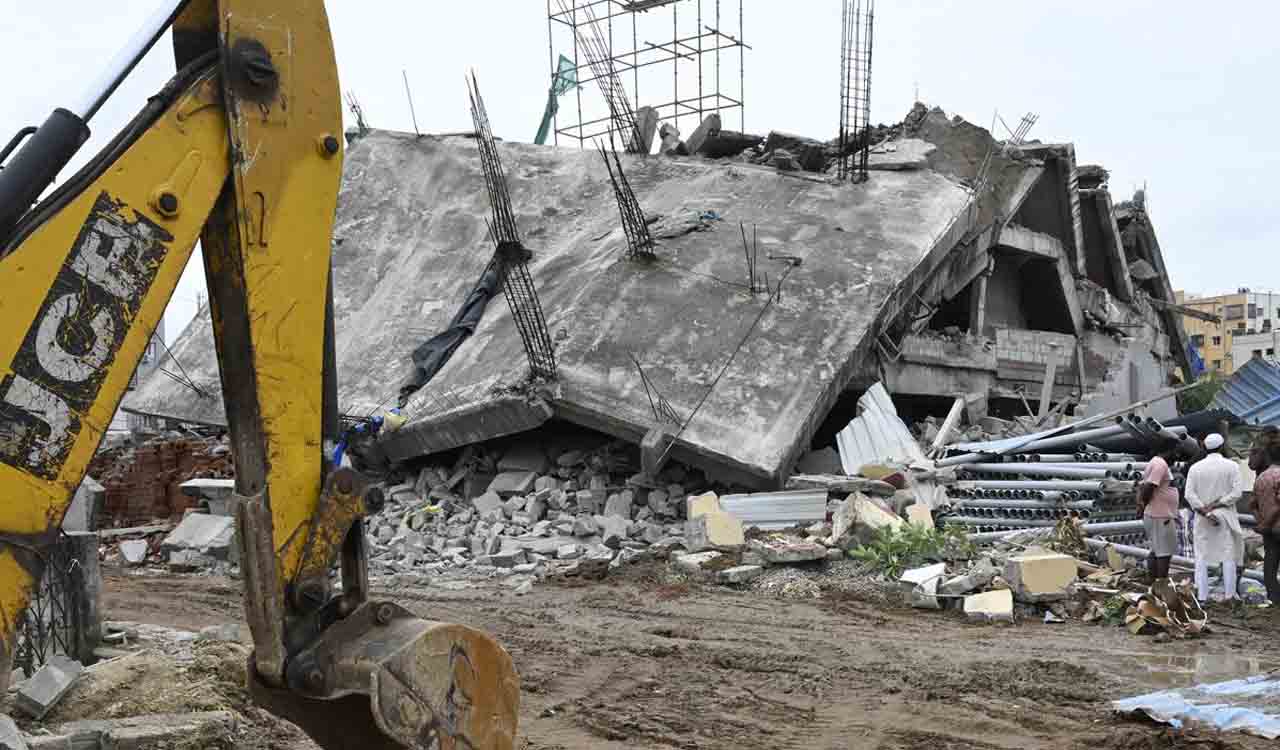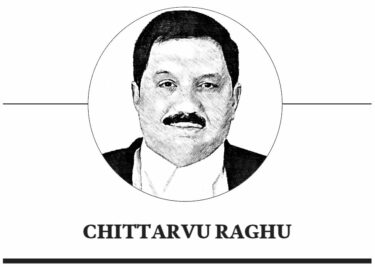Opinion: HYDRAA’s overreach—Rule of Law is non-negotiable
Telangana High Court’s rebuke of Commissioner HYDRAA is a reminder that the law is the master and the administration merely its servant

By Chittarvu Raghu
The Rule of Law stands as the unshakeable bedrock upon which all successful democratic societies are built. It is the principle that every person, institution, and entity — public or private, including the state itself — is accountable to laws that are publicly promulgated, equally enforced, and independently adjudicated. This principle ensures that governance is conducted through defined, predictable procedures, not arbitrary will.
Also Read
In a democracy, the Legislature is tasked with enacting laws. These laws stipulate the framework, powers, and procedures for public administration. The Executive wing, comprising administrative bodies and their officers, is then bound to execute decisions duly adhering to the procedure stipulated under these legislations. When an administrative authority deviates from the prescribed procedure, it violates the Rule of Law, thereby undermining the very democratic structure it is meant to serve.
Case of Statutory Overreach
A recent instance involving the Commissioner, HYDRAA (Hyderabad Disaster Response and Asset Protection Agency), serves as a compelling and timely illustration of this fundamental conflict. The Telangana High Court recently had occasion to sharply reprimand the Commissioner HYDRAA, an officer operating at the highest level of this specialised municipal administration, for not adhering to due process in the zealous pursuit of protecting claimed government properties.
HYDRAA is not an entity operating outside the constitutional framework. It is a statutory body, its powers — which are extensive — vested under the Municipal Corporation Act and various other enactments. Its authority is explicitly defined by law; it is not an extra-constitutional body empowered to act without following procedural due process.
The Commissioner, as an Indian Police Service (IPS) officer in an administrative role, holds a position of immense public trust and is tasked with upholding the Constitution and the laws of the land. The question that arises is critical: Can a Commissioner HYDRAA act in direct violation of the law? The answer, unequivocally, is no. Such action is not merely an administrative error; it is an antithesis to democracy. The functioning of public authorities must be characterised by legality, not by an autocratic style of function, which has no legitimate place in democratic societies.
Legal Principles on Property Rights
The law concerning the eviction of persons occupying government property, especially regarding the crucial balance between administrative efficiency and individual rights, has a long and reasoned history of development.
Way back in 1905, the Land Encroachment Act was enacted. It contemplated a summary procedure for the eviction of any person encroaching upon government property. The legislative intent behind such a summary power was to enable the swift recovery of public land. However, this power is not absolute, and its use has been substantially refined by judicial interpretation to safeguard the Rule of Law, particularly the right to property and the principle of due process of law.
Protecting public assets is a duty, but this duty must be discharged within the confines of the law, and not by an autocratic style of function
The Supreme Court of India, in the landmark case of Government of Andhra Pradesh v. Tummala Krishna Rao, and a series of other judgments, has decisively held that in cases where an individual establishes settled possession, the state cannot arbitrarily invoke the summary procedure under the Land Encroachment Act.
Settled possession implies a long-standing, peaceful, and uninterrupted occupation, even if initially unauthorised. In such circumstances, the state is relegated to the ordinary legal route — that is, filing a regular suit for eviction in a civil court — rather than resorting to administrative self-help.
This judicial insistence on a regular court proceeding is a powerful affirmation of the Rule of Law. It means that the state, like any other party, must prove its title and right to eviction before an impartial judicial forum, thereby ensuring the citizen’s right to a fair hearing.
Furthermore, the Law of Limitation prescribes a significant period — 30 years — within which the government can file a suit for the eviction of a person occupying government property. This lengthy period acknowledges the unique position of the government but simultaneously imposes a clear limit, preventing the administration from using the threat of eviction indefinitely.
Over the course of time, the law has decisively evolved in these aspects, mainly adhering to the principle of the Rule of Law. This legal evolution is not an obstruction to governance; rather, it is a refinement that ensures administrative action remains consistent with constitutional mandates and fundamental rights. The shift from a purely summary administrative process to one that demands a judicial decree for settled possession represents the judiciary’s commitment to ensuring that no authority, however powerful, can bypass due process.
The Reprimand: A Necessary Judicial Check
The High Court’s reprimand of the Commissioner HYDRAA is, therefore, not an intrusion into Executive function but a timely and necessary judicial check. It serves as a caution that officers, including those from the esteemed IPS cadre, cannot claim that they are functioning to protect government properties by violating the law. Protecting public assets is a duty, but this duty must be discharged within the confines of the law.
Any action taken by an administrative officer, even with the noble intent of protecting public property, loses its legitimacy when it is procedurally flawed or illegal. The means are as crucial as the ends. Allowing the Executive to bypass due process in the name of efficiency or zeal creates a dangerous precedent, opening the door to arbitrary power and the potential for abuse.
The High Court’s intervention re-establishes the crucial understanding that the highest standard of adherence to the Rule of Law is expected precisely from those officials who are sworn to administer it. It underscores that in a democracy, the law must be the master, and the administration merely its servant. The integrity of the system rests entirely on this principle.

(The author is a Senior Advocate)
Related News
-
Couple elected as chairperson and vice-chairperson of Nirmal Municipality
5 hours ago -
Telangana municipal polls: BRS pockets 18 municipalities
5 hours ago -
BJP draws sharp criticism for meeting Congress leaders in Hyderabad
5 hours ago -
Inorbit Mall Cyberabad hosts Valentine specials, interactive games and live performances
5 hours ago -
Jangaon chairperson election postponed amid high drama
5 hours ago -
Editorial: Showcasing India’s tech prowess
6 hours ago -
Health Minister orders suspension of absent Jogipet doctors
6 hours ago -
Telangana government initiates preparations for first fully digital Census 2027
6 hours ago




